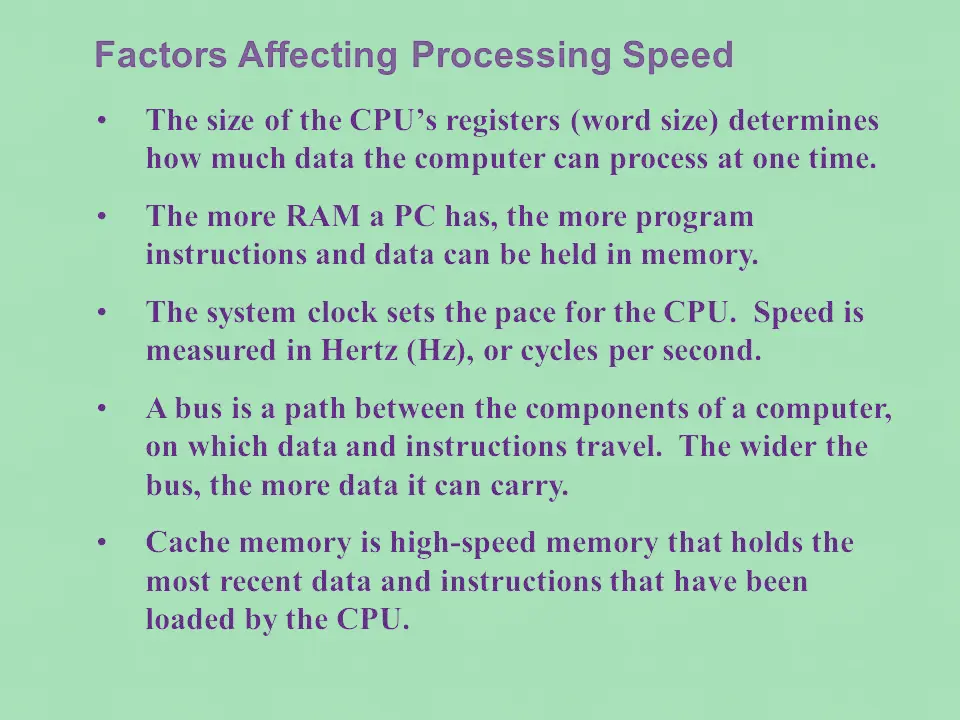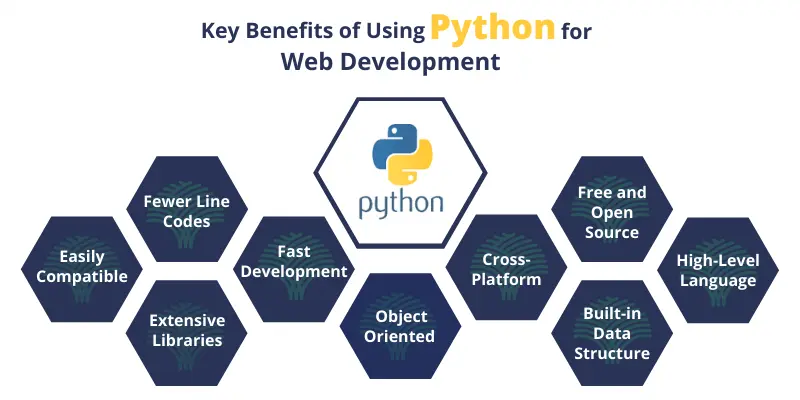
Programming today is a race between software engineers striving to build bigger and better idiot-proof programs and the Universe trying to produce bigger and better idiots. So far, the Universe is winning.
― Rick Cook
Moonpreneur
Update: This article was last updated on 13th September, 2024 to reflect the accuracy and up-to-date information on the page.
In the fast-paced world of software development, speed plays a vital role. A programming language’s performance can significantly impact a project’s overall rate.
With its reputation as a universal language, Python is often criticized for its slower execution. On the other hand, C++ is renowned for its speed and efficiency. In this blog post, we will explore the factors determining the rate in programming languages and help you decide whether Python or C++ is the better choice for your project.
Here’s a table giving the difference between Python and C++ based on various parameters
| Category | Python | C++ |
|---|---|---|
| Performance | Generally, slower execution | Highly efficient and faster execution |
| Use Cases | Rapid prototyping, web development, scripting, automation, data analysis, machine learning, and scientific computing. | System-level programming, high-performance, computing, real-time applications, and resource-constrained environments. |
| Speed Factors | Interpreted nature, dynamic typing, potential GIL bottleneck. | Compiled language, no GIL limitations, low-level control. |
| Memory Management | Automatic garbage collection. | Manual memory management. |
| Ecosystem | Extensive libraries and frameworks are available for various tasks. | A rich ecosystem with powerful features, and optimization techniques. |
| Development Time | Quick development cycles. | The longer development time for optimization. |
| Platform Dependencies | Platform-independent | Platform-specific dependencies. |
| Code and Complexity | Simplicity, readability, and ease of use. | Close to hardware control, complex syntax for beginners. |
| Integration | Seamless integration with existing codebases and libraries. | Can be integrated with Python using language interoperability. |
Speed and Performance: Unveiling the Importance
In today’s digital landscape, speed is of paramount importance. Faster execution leads to improved user experience, reduced latency, and increased efficiency. The programming language you choose directly affects the speed and performance of your project. Understanding the impact of programming languages on speed is crucial in making informed decisions.
The graphic presents data on the most in-demand programming languages.
Recommended Reading: HOME SMART CHEF TAKES 2ND PLACE AT MOONBATTLE SEASON 2 COMPETITION
Python – A Versatile Language with Trade-offs:
Python is widely regarded as a universal language due to its simplicity, readability, and extensive library support. It is trendy for web development, scripting, automation tasks, data analysis, machine learning, and scientific computing. However, Python’s interpreted nature and dynamic typing can impact its execution speed.
The Global Interpreter Lock (GIL) is another potential performance bottleneck in multi-threaded applications. Despite these trade-offs, Python offers ways to enhance its speed through optimized libraries and frameworks.
C++: The Powerhouse of Speed:
 C++ is known for its high performance, efficiency, and low-level control. It is a compiled language, which means it is translated directly into machine code, enabling faster execution.
C++ is known for its high performance, efficiency, and low-level control. It is a compiled language, which means it is translated directly into machine code, enabling faster execution.
Unlike Python, C++ does not have a Global Interpreter Lock, allowing for better parallelism and concurrency. C++ is well-suited for system-level programming, operating systems, high-performance computing, real-time applications, and resource-constrained environments such as embedded systems and IoT devices.
Its optimization techniques, including manual memory management, further increase its speed.
Factors Affecting Execution Speed
 Several factors influence the execution speed of a programming language. The complexity of the project and algorithmic efficiency play a significant role. Efficient algorithms can significantly improve execution time, regardless of the chosen language. Additionally, the number and type of operations performed, memory management, resource allocation, and hardware limitations can affect the overall speed. Platform dependencies, such as the operating system and hardware architecture, also impact performance.
Several factors influence the execution speed of a programming language. The complexity of the project and algorithmic efficiency play a significant role. Efficient algorithms can significantly improve execution time, regardless of the chosen language. Additionally, the number and type of operations performed, memory management, resource allocation, and hardware limitations can affect the overall speed. Platform dependencies, such as the operating system and hardware architecture, also impact performance.
Use Cases
When to Choose Python
 Python excels in several use cases where there are other concerns than speed. It is ideal for rapid prototyping and development cycles, where quick turnaround time is crucial. Python’s extensive libraries and frameworks make it well-suited for web development, scripting, and automation tasks. It also shines in data analysis, machine learning, and scientific computing, where its rich ecosystem provides efficient tools and frameworks. Furthermore, if you need to integrate with existing codebases or leverage specialized libraries, Python’s simplicity and ease of use make it a favorable choice.
Python excels in several use cases where there are other concerns than speed. It is ideal for rapid prototyping and development cycles, where quick turnaround time is crucial. Python’s extensive libraries and frameworks make it well-suited for web development, scripting, and automation tasks. It also shines in data analysis, machine learning, and scientific computing, where its rich ecosystem provides efficient tools and frameworks. Furthermore, if you need to integrate with existing codebases or leverage specialized libraries, Python’s simplicity and ease of use make it a favorable choice.
When to Choose C++
 C++ is the go-to language when speed and efficiency are paramount. It excels in system-level programming, operating systems, and software that demands maximum speed and efficiency. C++ is also well-suited for high-performance computing, where intensive computational tasks require optimal execution speed. In resource-constrained environments, such as embedded systems and IoT devices, C++ outperforms Python due to its low-level control and minimal resource usage.
C++ is the go-to language when speed and efficiency are paramount. It excels in system-level programming, operating systems, and software that demands maximum speed and efficiency. C++ is also well-suited for high-performance computing, where intensive computational tasks require optimal execution speed. In resource-constrained environments, such as embedded systems and IoT devices, C++ outperforms Python due to its low-level control and minimal resource usage.
Recommended Reading: MICRO:BIT 101 – WHAT KIDS NEED TO KNOW
Balancing Speed and Development Efficiency
 Choosing the correct programming language involves considering the speed and development efficiency trade-offs. While C++ offers unmatched performance, its complex syntax and manual memory management can increase development time. On the other hand, Python’s simplicity and ease of use enhance development efficiency, but it sacrifices some speed.
Choosing the correct programming language involves considering the speed and development efficiency trade-offs. While C++ offers unmatched performance, its complex syntax and manual memory management can increase development time. On the other hand, Python’s simplicity and ease of use enhance development efficiency, but it sacrifices some speed.
Profiling and optimizing critical sections of code can help mitigate performance bottlenecks. Leveraging hybrid approaches and language interoperability, such as building performance-critical modules in C++ and integrating them into Python, can balance speed and development efficiency.
Conclusion
Your project’s choice between Python and C++ ultimately depends on your specific requirements. Python’s versatility, ease of use, and extensive library support make it a favorable option for various applications. C++, with its speed, efficiency, and low-level control, C++ is the go-to language for high-performance and resource-constrained scenarios.
Striking a balance between speed and development efficiency is crucial, and understanding the trade-offs of each language can help you make an informed decision. Consider factors such as project complexity, development time, and performance needs to determine whether Python or C++ is better for your project.
Moonpreneur is on a mission to disrupt traditional education and future-proof the next generation with holistic learning solutions. Its Innovator Program is building tomorrow’s workforce by training students in AI/ML, Robotics, Coding, IoT, and Apps, enabling entrepreneurship through experiential learning.
Register for a free 60-minute robotics workshop today!

















How can I strike a balance between language choice and development efficiency?
Think about the trade-offs between the performance of C++ and Python’s simplicity and convenience of use. Finding a balance can be facilitated by utilizing hybrid techniques like language interoperability and profiling and optimizing important code areas.
Is it possible to combine C++ and Python in a project to get the best performance?
It is feasible to use hybrid techniques. A Python program can benefit from having performance-critical C++ modules built and integrated into it to help strike a balance between development efficiency and speed.
When is it better to use C++ than Python?
When speed and efficiency are critical, choose C++. Examples of these scenarios include operating systems, embedded systems, high-performance computing, and system-level programming.